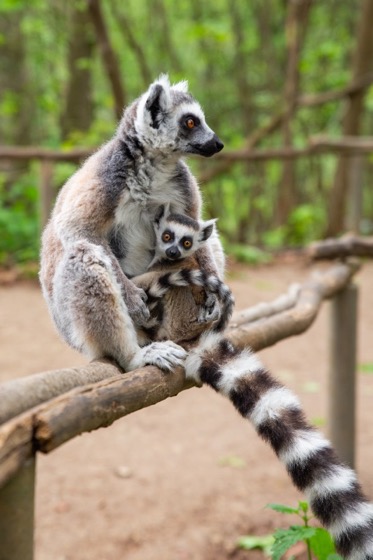Automatic Detection, Segmentation and Classification of Lemur Vocalizations

We study how sensory cues affect group communication and collective behaviors in ring-tailed lemurs. Communication studies are integral to a complete understanding of animal behaviour and, consequently, the evolutionary and ecological processes that influence life. A major limitation in many communication studies is the processing time needed for the extraction and identification of calls in longer recordings. The objective of this project is to create deep learning models for automatic detection, segmentation, and classification of lemur vocalisations from continuous acoustic recordings.
Responsibilities
- Conducting an extensive literature review to gather and summarize current knowledge and advancements in automatic vocalization segmentation in animals,
- Annotating lemur vocalisations in longer recordings, which serve as training data for the model,
- Developing a comprehensive model for the automatic detection and segmentation of animal calls,
- Developing a comprehensive model for the classification of animal calls,
- Preparing a scientific report that presents the project’s findings, methodologies, and results in a clear and concise manner,
- Documenting the developed algorithm and its implementation in a way that enables other researchers and practitioners to utilise it effectively.
Duration and Location
Although we encourage students to be based in Göttingen, we are open to conducting the analyses and write-up remotely. Additionally, there is a unique opportunity to acquire hands-on data collection skills by participating in tagging and video recording of lemurs at Affenwald Straußberg. The project is anticipated to commence at the end of summer/early autumn 2023, yet the exact start time offers some flexibility.
Requirements
- High motivation to work on an applied project and develop practical solutions.
- Python programming
- Deep Learning knowledge (e.g. DL lecture)
- Experience with PyTorch
Contact
To apply please send an email to Dr Kaja Wierucka and Richard Vogg stating your interest in this research and detailing your relevant skills. We welcome diversity in all its forms.
